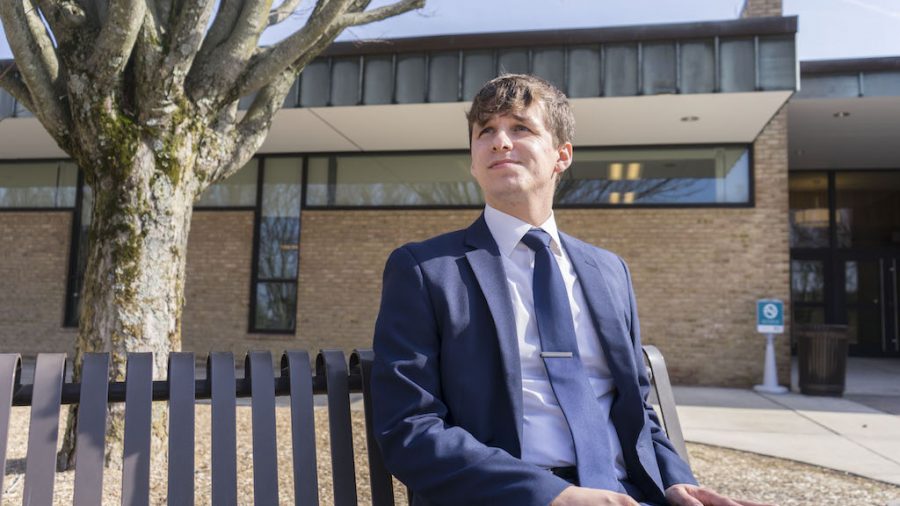Home-schooled students stay together
At AACC, 244 students with a home-school education are enrolled in the spring semester, including sophomore Adam Hertz.
March 31, 2017
Second-year transfer student Tori Childs did not have many friends in high school, so when she came to AACC two years ago she was nervous she would not make friends here, either.
It was not until her professor assigned group work that she found people she could relate to. Like her, they had been home-schooled.
“For me the main ste- reotype is not being able to socialize, which happened to me when I started college,” Childs said. “I was not around a lot of people, so making friends was a little hard.”
In the spring semester, 244 one-time home-schoolers are enrolled at AACC. Many of them said they like to stick together on campus.
Home-schooling is an alternative form of education to public and private school. The student is taught by a tutor or a parent.
According to a 2012 National Household Education Survey by the U.S. Department of Education’s National Center for Education Statistics, the main reason parents decide to home-school their children is because they are concerned about the environment of public schools.
“My wife and I decided to home-school our children because we felt they were not getting enough attention,” said instructional specialist Stephen Berry, who teaches business management.
Second-year undecided major Stephen Foster’s parents took him out of pub- lic school because he “was bullied throughout middle school.”
Other parents may home-school for religious reasons or their child has
mental or physical problems. Some traditional students think of their home- schooled classmates as so- cially awkward, isolated and not prepared for the real world, but that may not always be the case.
“Until I came to AACC, I didn’t know any home-schoolers and I thought that kids who are home-schooled were social- ly awkward,” said Amanda
Haney, a second-year busi- ness major. “Now I know that is not necessarily true because I am best friends with five people who were home-schooled.”
Home-schooling in Maryland went from 27,254 students in the 2015-2016 school year to 27,975 in 2016-2017, according to the Maryland Homeschool Association. In Anne Arundel County, 2,450 students were
home-schooled in the 2015- 2016 school year.
According to Anne Zeise, a home-schooler con- sultant, fewer parents home- school their children when the economy is failing.
“One parent is usually doing all of the teaching, so the family is on one income,” Zeise said. “So if the econo- my is doing not so great, it is most likely both parents will end up working.”












